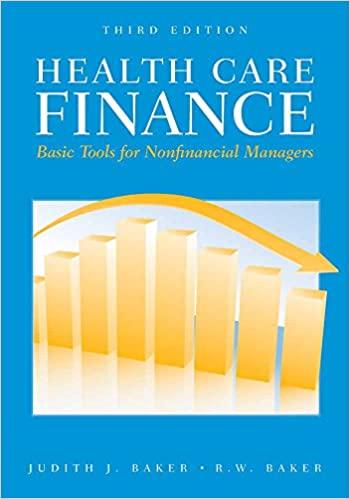Answered step by step
Verified Expert Solution
Question
1 Approved Answer
XYZ Ice Cream Parlor Limited John Doe could not believe when his partner Samuel Jones told him their business was worth $ 1 0 million.
XYZ Ice Cream Parlor Limited
John Doe could not believe when his partner Samuel Jones told him their business was worth $ million. He asked, how could a business with sales of less than $ million be worth $ million. said he simply got a financial formula from a textbook to obtain his valuation.
These two have owned an ice cream parlor for years and the parlor has been extremely successful. However, recently, Jones has spent significantly less time in the business and has begun to show that he is disinterested. Doe asked him about it and Jones noted that he would not mind exiting the business and going his separate way. Doe likes the idea of being the sole proprietor as he would reap all the profits of the business. Thus he asked what the business was worth and Jones told him $ million. However, would not divulge the means of calculating the valuation. Doe insisted on the formula but eventually contacted his accountant Sam Klein to get a second opinion on the valuation of the business. During this meeting, the accountant hinted that he believed that Jones was using the dividend discount model to calculate the value. decided to provide some of the estimates included:
$ was the companies EBIT
G which was the growth rate of EBIT over the past years
R
Klein noted that growth over the past two years had decreased to thus the year average was a bit skewed. Doe also asked Moore if he considered the $ aftertax cost of remodeling, or that most area restaurants last about to years before going out of business and that he would have to assume the outstanding debt of the restaurant. Moore admitted he wasn't sure "the formula has considered all this," and then dryly mentioned that he might insist on dividing the restaurant's liquid assets. Klein also pointed out that both of them have been taking below market salaries of $ each versus $ for experienced managers. Klein then attempted to calm an obviously emotional Doe and soften Moore's firm position by pointing out as tactfully as possible that he is confident the restaurant is worth less than $ million. Klein continued that a good rule of thumb is to use the fair market value of assets plus a premium of less any debt. However, that rule of thumb is at best only an approximation. It can't be expected to apply to a wide range of situations. Finally, he emphasized that there is no magic number of value for a business.
POSTMORTEM
After they left, Klein talked about this with his assistant, Jane Williams, for nearly an hour. Wiliams said it was a good idea for Klein to highlight that there is no magic number for the value of the business. "This gets them in the frame of mind for bargaining. All we can really do is narrow the discussion to a range of reasonable values. Negotiation and personality are likely to determine the final price." Klein agreed and decided to make estimates under three scenarios. See Exhibit There were a number of points that Williams and Klein agreed were common to all three scenarios.
An estimate should discount the future yearly aftertax cash flow a buyer can expect to receive.
The restaurant's present working capital and equipment situation is adequate.
The amount of yearly depreciation will be about equal to the yearly principal repayment on the debt.
No cash will be necessary to support any future increases in working capital.
Any growth in earnings before taxes EBT will be used to purchase or maintain equipment.
NOTE: Assumptions and imply that the aftertax cash flow a buyer will receive each year equals the net income or earnings after taxes EAT estimate of each scenario.
The valuation estimate should consider a competitive wage and the renovation cost.
The appropriate required rate is percent.
The relevant tax rate is percent.
Exhibit presents the assumptions that are specific to each scenario.
EXHIBIT
Current Year Balance Sheet and Income Statement
Cash $
Accounts receivable
Inventory
Equipment
Total assets $
Notes payable $
Accounts payable
Other current
Bonds
Equity
Total liabilities and equity $
Sales $
COGS
Operating expenses
EBIT
Interest
Earnings Before Taxes $
EXHIBIT
Assumptions Specific to Each Scenario
Worst Case Base case Bull Case
EBIT $yr $yr $yr
Life of Business years Years years
QUESTIONS
Estimate the value of the restaurant in each of the three scenarios in exhibit using the corporate valuation model. Ignore any changes in net working capital.
Step by Step Solution
There are 3 Steps involved in it
Step: 1

Get Instant Access to Expert-Tailored Solutions
See step-by-step solutions with expert insights and AI powered tools for academic success
Step: 2

Step: 3

Ace Your Homework with AI
Get the answers you need in no time with our AI-driven, step-by-step assistance
Get Started


